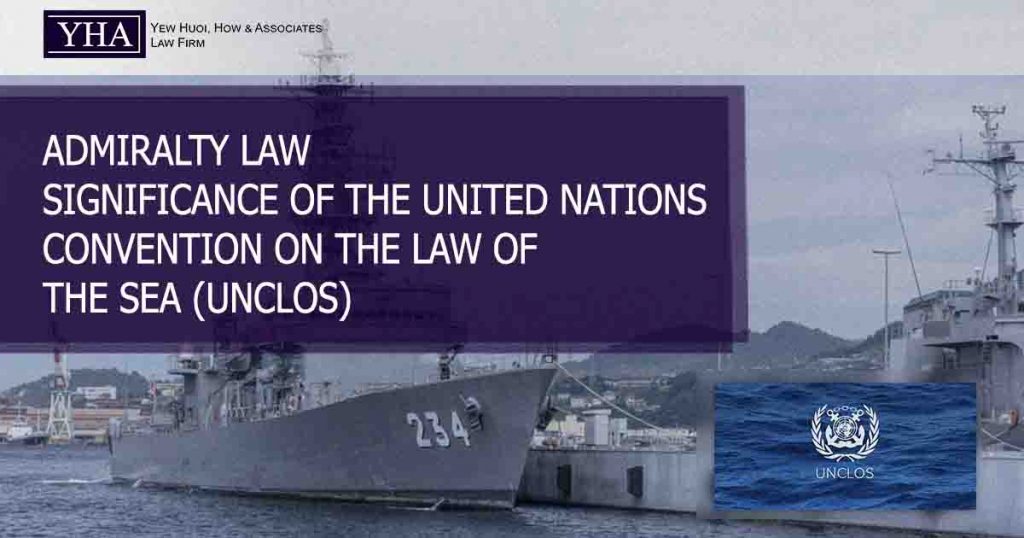UNCLOS (1982 Dec. 10) 1833 U.N.T.S. 397
Purpose of the UNCLOS and has it been ratified by Malaysia?
1. Establishing a legal order for the Seas and oceans with the aim of:
– Spurring international communication on maritime fronts between states.
– Promoting peaceful use of the seas and oceans.
– Conserving the living resources and the marine environment.
2. Malaysia ratified UNCLOS on the 14th of October 1996 as a state party Malaysia has always and continues to implement into practice various provisions under UNCLOS 1982.
What is the significance of UNCLOS 1982 in Malaysia?
- Malaysia is strategically located between the South China Sea and the straits of Malacca and Singapore, it is one of the most important waterways connecting the Indian Ocean to the Pacific Ocean, the growing presence of the Straits in international trade poses evolving challenges. UNCLOS 1982 ensures the economic viability and sustainability of the ecosystem along the abovementioned shipping channels are preserved.
What are the measures under UNCLOS 1982 practiced by Malaysia?
- Malaysia practices the Traffic Separation Scheme, prescribed under UNCLOS 1982 to ensure safe passage through the Straits, this eases international navigation for ships through the straits.
- UNCLOS 1982 also provides cooperative arrangements between states as a method to strengthen communication.
- The cooperation aids in the preservation of marine environment. For instance, states may establish requirements to reduce and control pollution to allow the entry of foreign vessels into their ports.
- The mechanism also acts as a platform for companies and other stakeholders of the shipping industry to actively contribute towards efforts to maintain and improve safety of navigation and preservation of biodiversity in the shipping channels.
What are the current maritime co-operations pursued by Malaysia?
- Malaysia promotes cooperation in maritime security through the Association of South East Asian Nations (ASEAN) through forums such as the ASEAN Maritime forum.
- Malaysia alongside Indonesia, Singapore and Thailand formed the Malacca Straits Coordinated Patrols they pursue activities to maintain the security in the Straits of Malacca.
- Malaysia, Indonesia and the Philippines share an avenue under the Trilateral Cooperative Arrangement with the aim of meeting common goals such as strengthening maritime security in the Sulu and Sulawesi Seas.

